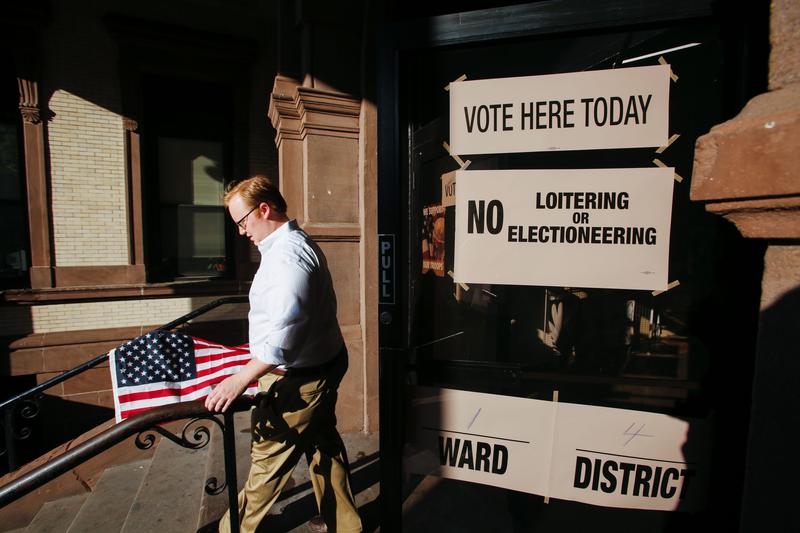BOB GARFIELD: Bill Mitchell is a journalist and former head of Poynter.org, and he has a different view on the AP’s decision, not that he was surprised by it because MSNBC's Chris Matthews spilled the beans to his viewers weeks ago.
[CLIP]:
CHRIS MATTHEWS: …June 7th, at 8 o'clock that night, Eastern Time, the networks will be prepared, including this one, to announce that Hillary Clinton has now gotten over the top…it’s done. What will that do to turnout, if that’s 5 o'clock Pacific Time, with three more hours to vote in California?
[END CLIP]
BILL MITCHELL: That was one of the things that tipped me off to start thinking about the consequences of the way these superdelegates, especially, are counted.
BOB GARFIELD: They had the news. They’ve been canvassing these delegates for many, many months. Had they failed to report it, wouldn't that be sitting on a story, withholding news from the readers?
BILL MITCHELL: It would have been. It would have been absolutely the wrong thing to do. To dig into the issue of superdelegates, I think that's the kind of rigorous reporting the AP is known for, and it was a good idea to do. What I think they did wrong was portraying what they came up with to carry much more significance than it actually did. Those superdelegates will not actually cast their votes until the July 25th convention. And it's certainly true that none of the superdelegates have changed their preferences but I think to simply assume, especially in a year like this one, that things will turn out as journalists and political prognosticators think they will is really driving past our headlights.
BOB GARFIELD: However, I'm looking [LAUGHS] at the AP’s story and it says, Hillary Clinton has commitments from the number of delegates needed to become the Democratic Party's presumptive nominee for president and will be the first woman to top the ticket of a major US political party. It’s a bit of a hedge. It’s couched in a way that makes it dependent on the commitments. They seem to have, at a minimum, covered their butts.
BILL MITCHELL: But I think the thrust of the story is all drumroll and fanfare. You know, it begins striding into history: Hillary Clinton will become the first woman. The AP should have made it quite clear how much of a staggering lead Clinton had developed but I think stopped short of declaring her the first woman nominee.
BOB GARFIELD: They are headed for the convention. They have told reporters at the AP their intentions and, at some point in the future, those votes will count but they don't count yet. Is it for the AP to hew to the Democratic Party's internal rules or to take these delegates at their own word?
BILL MITCHELL: I think they should make an independent judgment, so I have no problem with them taking these delegates at their own word. I would have preferred if that word was not anonymously expressed, as it was with some of delegates in the latest count, but I understand why that might not have been possible, to get everyone on the record. So I applaud the AP for acting independently from Democratic rules, but I still don't think that opens the way for the kind of declaration of victory that resulted. And all I'm suggesting is that it might be time for journalists to ease up on journalistic omniscience. We have to stop short of declaring her the winner until, actually, she receives the nomination.
BOB GARFIELD: All right, Bill, thank you so much.
BILL MITCHELL: Thank you, Bob.
BOB GARFIELD: Bill Mitchell is former head of Poynter.org.
[MUSIC UP & UNDER]
Coming up, Clinton's ascendancy is one historic moment. Donald Trump’s is quite another. Does his demand a new kind of journalism? This is On the Media.


